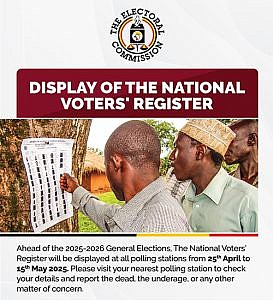In a landmark public safety initiative, Hongera Saana Uganda, in collaboration with several security agencies, has begun distributing free motorcycle tracking devices to boda-boda riders across the country in an effort to curb theft and improve rider security.
The project, which operates under the Office of the President, is being implemented in partnership with the Uganda Police Force’s Community Policing Department, the Internal Security Organisation’s (ISO) Anti-Terrorism Unit, and the Traffic Police.
Ashraf Muyomba, the National Coordinator for Hongera Saana Uganda, said the initiative is designed to safeguard the livelihoods of boda-boda riders, who remain vulnerable to both criminal attacks and wrongful accusations.
“We want riders to feel safer and more secure knowing their motorcycles can be tracked at all times,” Muyomba said, adding that the program also includes 24-hour emergency response services to aid in cases of theft, attack, or accidents.
So far, 2,056 trackers have been installed for riders operating in areas such as Wakiso Town Council, Mumyuka, Mende, Bujjuko, Ndejje, Kasanje, Kajjansi, and Makindye-Ssabagabo.
Muyomba emphasized that the GPS systems not only enhance recovery efforts but also improve safety in remote areas where police presence is limited.
“With crime targeting boda-boda riders on the rise, GPS tracking is now a crucial tool for protection and accountability,” he added.
Local rider representatives have praised the initiative. Hassan Yiga, Secretary for Defence for the Wakiso District Boda-Boda Riders Association, said most riders could not afford tracking services due to cost and unreliability in the private market.
“This program gives us access to a service we need but couldn’t get before. It’s a welcome development,” Yiga said.
Senior Superintendent of Police (SSP) Donald Muhwezi, the Kampala Metropolitan Community Liaison Officer, noted that most boda-boda riders operate on thin margins and often acquire their motorcycles through loans.
“Theft of a motorcycle can devastate an entire family financially,” he said. “With trackers in place, chances of recovery increase significantly.”
Muhwezi also highlighted the need for system-based policing: “As police, we are open to working with anyone who provides practical solutions to safeguard lives and property.”
The program also involves rider sensitization under the community policing model, aimed at educating riders on safety and their role in helping authorities identify criminal gangs exploiting the sector.
Ahmed Muwonge, the District Internal Security Officer (DISO) for Makindye-Ssabagabo, noted that while the boda-boda industry is a key economic pillar, it has increasingly been manipulated by criminals.
“The sector is critical economically, but also poses significant security challenges. We’re working closely with liaison officers to empower riders to be the first line of defense in their communities,” Muwonge said.
Boda-bodas remain a central part of Uganda’s transport system, especially for low-income earners and youth. However, their growing association with criminal activity — including robbery, drug trafficking, and violent crime — has drawn increased scrutiny from security agencies.
Authorities say the new tracking program is a practical step toward balancing public safety with the protection of riders’ livelihoods and restoring trust within the industry.









































